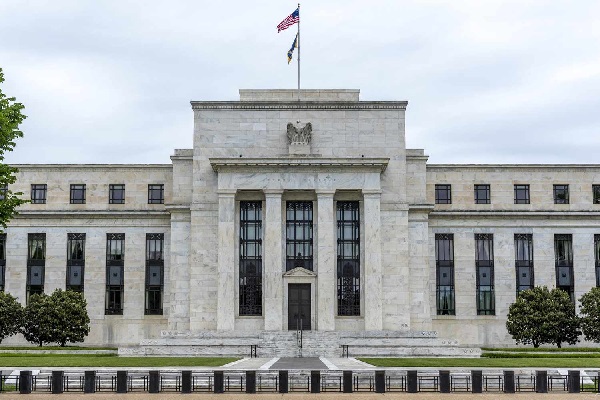
(Photo : Fed)
Fed Reserve Building
- Trump's election victory and potential GOP control of Congress could significantly alter the U.S. economic landscape.
- The Federal Reserve may face challenges in managing budget deficits and tariffs due to Trump's aggressive policy changes.
- Trump's victory has impacted global markets, with potential tariffs on Chinese imports and a surge in U.S. stocks.
- The coming months will be crucial in determining the trajectory of the U.S. economy under this new regime.
In a historic turn of events, former President Donald Trump has emerged victorious in the U.S. election, marking his return to office. This victory, coupled with the possible GOP control of both houses of Congress, could significantly alter the economic landscape of the country.
The Federal Reserve, which is expected to reduce its benchmark policy rate by a quarter of a percentage point, may have to navigate an uncertain economic terrain under the second Trump administration.
Trump's victory has been attributed to his aggressive policy changes, ranging from tariffs to tax cuts to stifled immigration, which could rewrite the economic growth and inflation outlook that Fed policymakers had anticipated for the coming year. However, the implementation of these proposals may take months, even under full Republican control.
Investors are now expecting the Fed to cut interest rates less than previously anticipated, as they assess the potential implications of a new economic regime. This regime could lead to higher federal deficits, higher growth, and higher inflation in the short run, but it also carries longer-term risks.
The Fed's Challenge and Trump's Relationship with Powell
Steven Blitz, Chief U.S. Economist at TSLombard, highlighted the potential challenges the Fed may face in managing the direction of budget deficits and tariffs. The central bank, which previously had free rein to raise interest rates to combat inflation in a strong economy, may now have to keep up with shifts in trade and global capital flows triggered by administration policies.
Trump's relationship with Fed Chair Jerome Powell, whom he once branded an enemy due to rate hikes he believed were stifling growth, will be closely watched in the coming months. Powell, who was promoted by Trump to lead the Fed in 2018 and reappointed by President Joe Biden for a second term running through May 2026, has stated his intention to complete his term.
The Fed is expected to reduce its benchmark policy rate to a range between 4.5% and 4.75%, following up on the half-point reduction approved in September. However, market confidence in future actions has begun to wane, with the Fed now expected to end its cutting cycle as soon as the middle of next year with a policy rate ending in the 3.75% to 4% range.
Global Impact and Market Response
Trump's victory has also had a significant impact on the global stage. The Hang Seng index and its tech subindex saw a drop of nearly 3% each, while the Chinese yuan weakened. Markets are now closely watching the response from China 's National People's Congress (NPC) Standing Committee meeting.
Trump has indicated he may impose up to 60% tariffs on all Chinese imports, though it is unlikely that these tariffs will be applied universally, immediately, and at the maximum rate.
The election results have also led to a surge in stocks, particularly in the financial sector. Shares of Discover Financial Services soared 20.2%, marking the strongest gain of any S&P 500 stock. This surge was likely due to increased optimism about the deal receiving regulatory approval under a second Trump administration.









